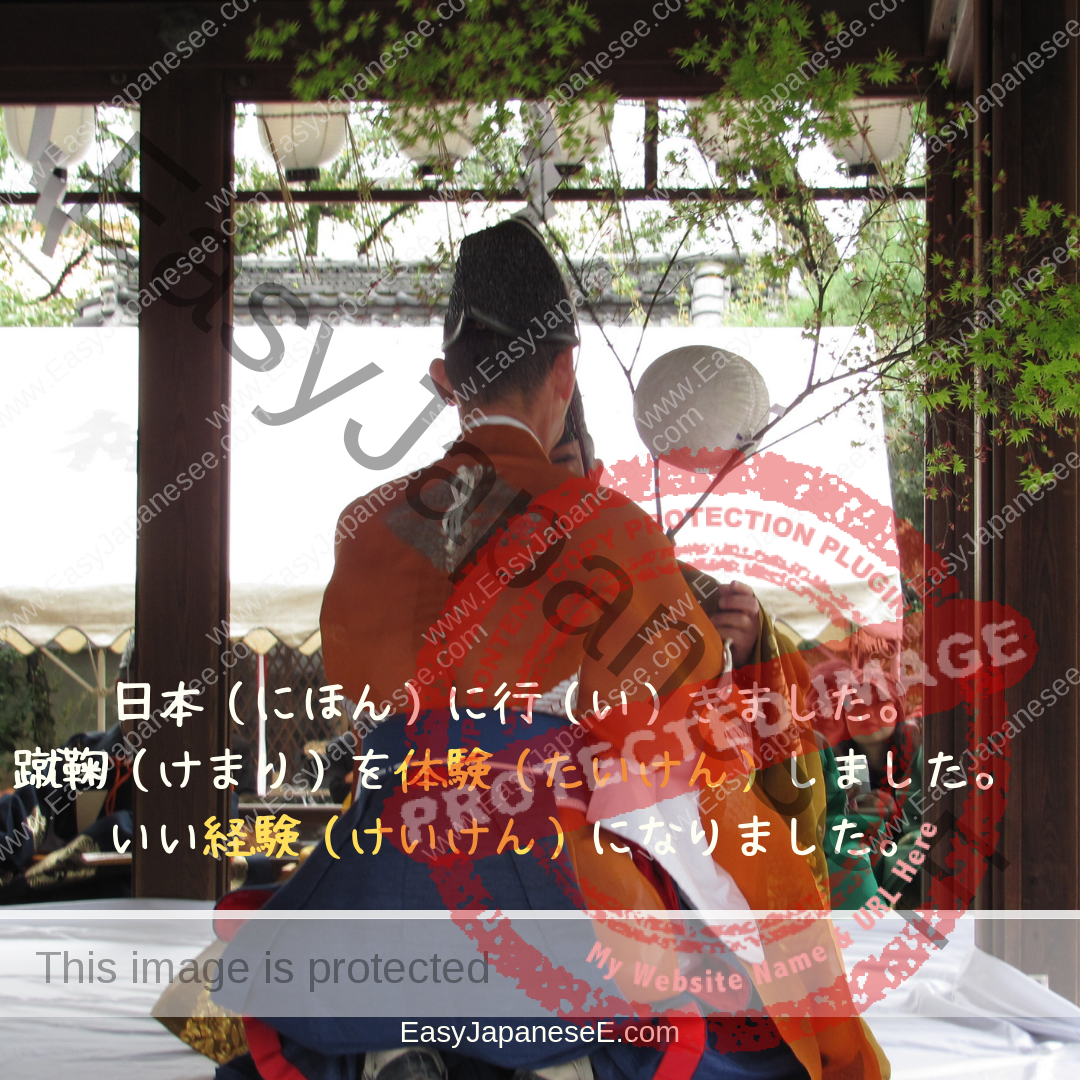I’ve got a request from one of my readers to explain the difference between 体験 and 経験.
They are both usually translated as “experience” and this English word “experience” includes the meaning of both 体験and 経験.
体験 is a word that focuses on one’s actual involvement and/or participation in the experience. It could be one-off experience and whether or not you got good at it or you have learned anything from it does not matter. Also, 体験 is something you experience on your own decision, rather than being forced to go through. On the other hand, 経験 includes the influence or impact of the 体験 afterwards. If someone goes through an experience unwillingly, like experiencing the loss of a loved one, it is usually called a 経験, not 体験.
In the photo, it says:
日本に行きました。I went to Japan蹴鞠を体験しました。I experienced Kemari football.いい経験になりました。It has become a good experience.
Here, the actual act of doing the Kemari is a 体験 but if you have learned something out of it, it becomes a 経験.
So, “hands-on learning” is called 体験学習 but not 経験学習.
“A report on experience” is 体験レポート but not 経験レポート.
In these phrases, hands-on experience is what that matters.
“A report on experience” is 体験レポート but not 経験レポート.
In these phrases, hands-on experience is what that matters.
On the other hand, an “experienced teacher” is called 経験のある先生, not 体験のある先生 because he/she is a teacher who has learned the art of teaching, not somebody with a one-off hands-on experience of teaching, which could be described as 指導体験のある先生, a teacher who has had a first hand experience of teaching once or twice but not necessarily an “experienced” teacher.
この記事を読んだ体験がよい経験となるよう願っています。
I hope your experience of reading this article will become a good experience for you.


One Reply to “体験 vs 経験”